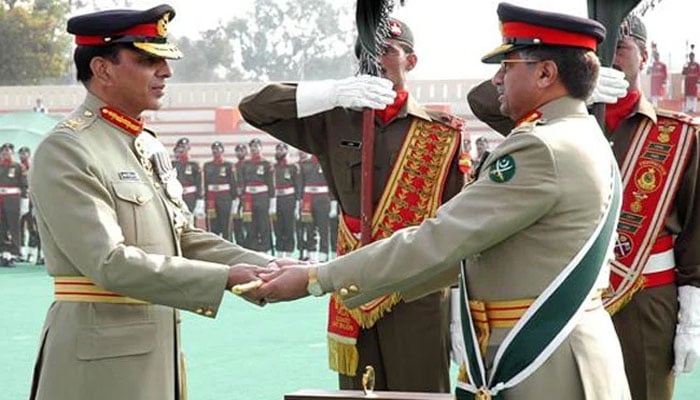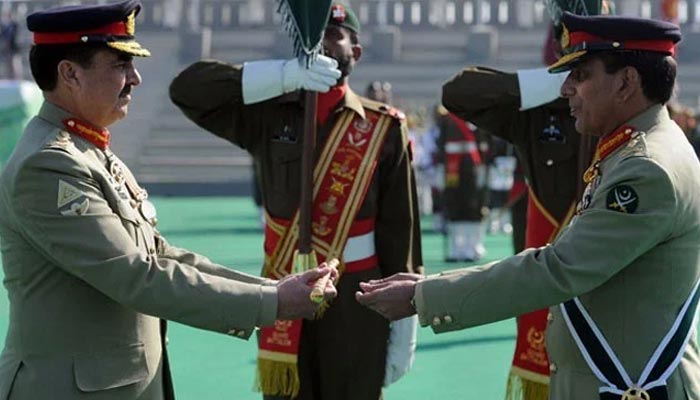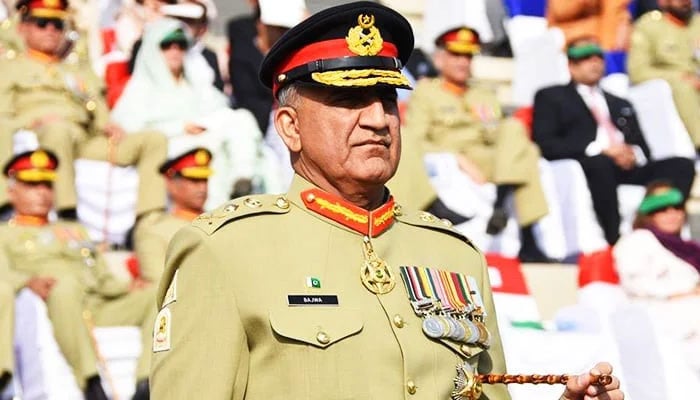[ad_1]
Every time a new Chief of Army Staff (COAS) is entrusted with the command of the military, an elaborate ceremony is held where the ‘baton of command’ exchanges hands with an unseen fervour.
In the ceremony, the outgoing army chief hands over the baton, also known as the Malacca Cane, with his eyes riveted to the eyes of his successor as if telling him to guard the honour of the baton with his life in the darkest as well as the brightest times ahead.
Let’s find out what’s the significance of the baton of command. It may look like a medieval sorcerer’s magic wand but it’s far more powerful than any of them even if they were real.
The passing of the baton of command from the outgoing army chief to the incoming one is the governing feature of the transfer of power ceremony.
The COAS and commanders have to carry a command cane with themselves necessarily at various occasions. For instance, when saluting the national flag, receiving a guard of honour or witnessing a parade, army officials must carry the command cane with them.

The command cane is kept away when the COAS meets with the president, prime minister or other high-level civilian government personalities.
Command canes are an integral part of high-ranking army officials’ uniforms, such as Corps Commanders and GOCs.
The Malacca Cane is made from the long slender stems of rattan palms found in the northern areas of Pakistan and is mostly used for making furniture.
Now Pakistan is once again set to put the leadership of its security forces in new but highly experienced hands.
Tomorrow, the COAS-designate Gen Asim Munir will receive the cane of command from his predecessor, General Qamar Javed Bajwa.

General Munir is the son of a schoolteacher who grew up in the garrison city of Rawalpindi.
He received a prestigious award for officers known as the ‘sword of honour’ as ‘the top of his year’ at the military academy.
Munir has served as chief of Pakistan’s two most influential intelligence agencies – first Military Intelligence (MI) in 2017 and then the Inter-Services Intelligence (ISI) in 2018.
The new army chief is currently serving as the army’s quartermaster general, in charge of supplies. He is also the most senior ranking general after General Qamar Javed Bajwa.
Munir assumes his three-year stint as army chief on November 29, the 17th holder of the post since Pakistan won independence from Britain in 1947.
—Additional input from Reuters…
[ad_2]

